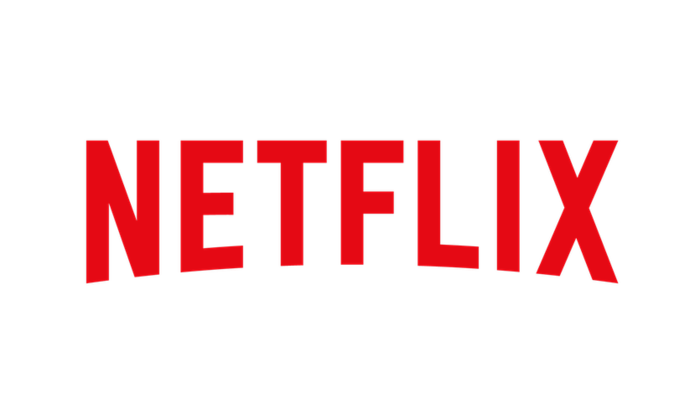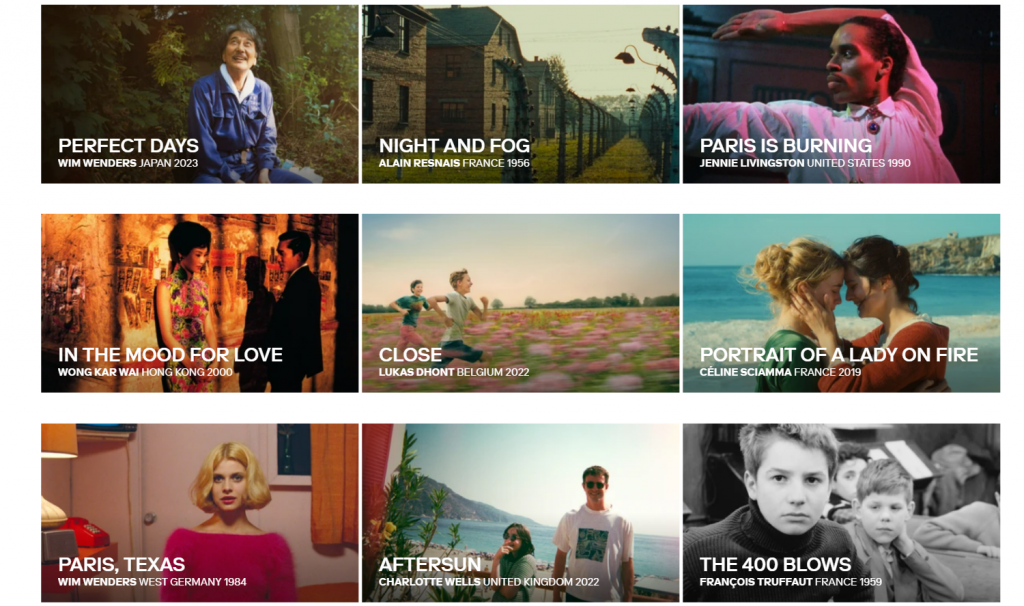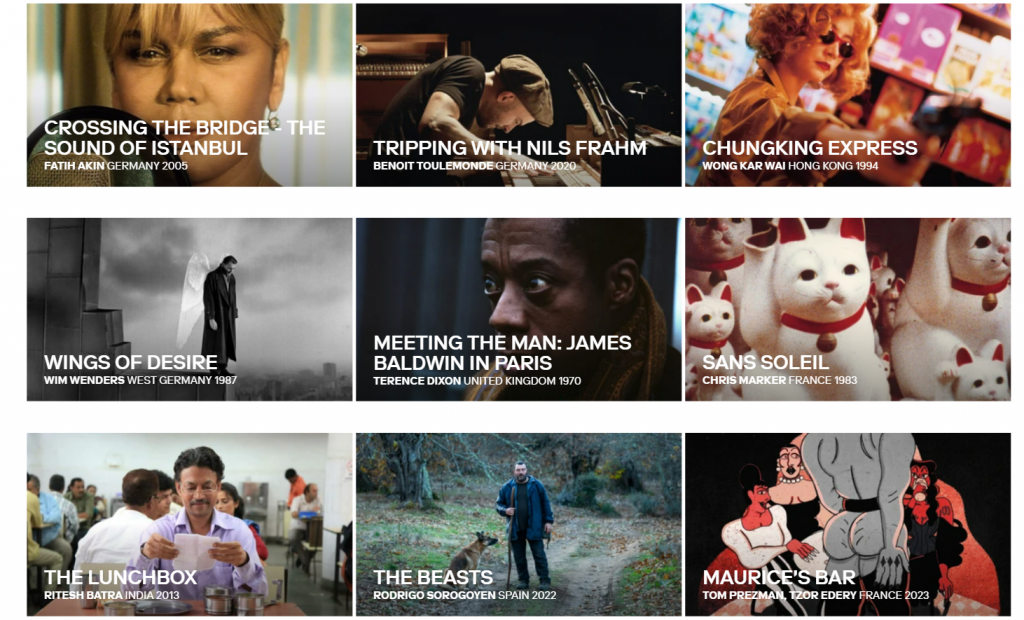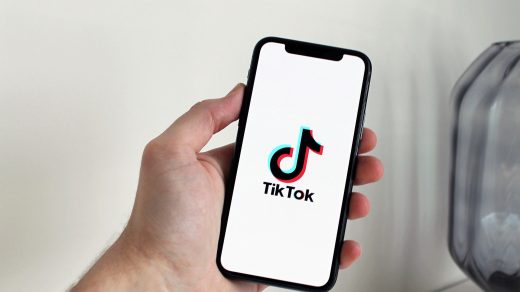In todays world there are so many streaming services to choose from that you can almost drown in the choices. Netflix, Amazon Prime, HBO Max etc. This makes choosing a film, for me at least, much harder, because I get overwhelmed by their offer. And adding to that I mostly saw mainstream American films on these services, even though there are many more country’s where good films are made.
This is why I found MUBI. It’s a streaming platform solely for film (except for Twin Peaks, but I think this is a fair series to put on MUBI). There are films from all around the world that i wouldn’t find on, for example, Netflix. This is the main reason I subscribed to MUBI, to explore film outside of the mainstream Hollywood films, but is this reason justified, or can I also find these films on Netflix? To answer this question I want to show you what MUBI is and how it compares to Netflix, and where they are in the world.
What is MUBI?
How does MUBI itself answer this question?:
“A streaming service? A curator? A publisher? A distributor? A cinema lover? Yes.”
It’s a versatile business and I think it even gets more versatile when looking at where their team members are located, because besides the established locations, London, New York, Berlin and Istanbul, There are team members located in 31 other country’s all around the world. They say:
I think this contributes to the way they choose their selection of films. They have so many people from different cultures working for MUBI that films from every continent are being selected. Although I miss one continent, that is Afrika. But on MUBI there are also films from Afrika shown, for example Ousmane Sembene’s Black Girl (1966), so they don’t ignore the African cinema. I think its safe to say with this that MUBI is a versatile, global and multicultural streaming service that wants to address the cinema lovers from all around the world.

What is Netflix?
To make the comparison I of course also need to look at Netflix and what they are. Their words describing themselves are:
This, in my eyes, is a much more commercial way of describing your streaming service. Especially including the “low monthly price” in the description of a your service gives this away. It isn’t a bad way to describe Netflix, because it all sounds good, and I think with this description a much wider public is reached, but that is exactly what Netflix wants. By looking at their locations its also, like MUBI, located all around the world and also aspire to represent the world:
By now Netflix maybe looks the same as MUBI. In the same way they want to be a global, multicultural and versatile streaming service, but if we look at both their selections, what stands out and what are their differences?

Let’s compare
I want to do 2 comparisons. The first is both their selection of films and how global, versatile and multicultural they are. For the best comparison I’m looking at the first ten films that are “award winning” on Netflix and the “MUBI top 1000″, because that’s the “best” selection they both have to offer on their streaming services.
Netflix: The Truman Show (1998), Interstellar (2014), Good Will Hunting (1997), Unbroken (2014), Primal Fear (1996), Cast Away (2000), Get Out (2017), Dead Poets Society (1989), The Pursuit of Happyness (2006), Erin Brokovich (2000).
MUBI: Perfect Days (2023), Night and Fog (1956), Paris is Burning (1990), In the Mood for Love (2000), Close (2022), Portrait of a Lady on Fire (2019), Paris, Texas (1984), Aftersun (2022), The 400 Blows (1959), The Fall (2006).

The conclusion after this comparison is that Netflix’s films are all American. Only Interstellar is part UK production, but the rest is all American production. Then when we look at MUBI, it’s much more versatile with a Hong Kong film, a Belgian film and much more differences in nationalities. Overall, MUBI is much more versatile, global and multicultural in this aspect. Scrolling further 10 more films will bring you on a page as versitale as this one. As example i’ll show another screenshot of the next 9 films:

Conclusion
I think by looking at the two MUBI is the one with access to a more versatile, global and multicultural experience of film. It’s not that Netflix doesn’t offer this, but it’s just more difficult to find, and i also think there is less. While searching on Netflix I hardly find a film not produced in the US, or you really have to search for it. On MUBI you can scroll through 10 films and have films produced in 10 different countries. So was my reason justified? Yes. MUBI is more global, more versatile and more multicultural than Netflix, and thus there are films from all around the world on MUBI that i wouldn’t find on Netflix. And even though both are almost located everywhere in the world, I think MUBI is more everywhere, because of who they represent with the films they select. So if you yourself want to explore the world of cinema outside Hollywood and enrich yourself with what these films have to offer, try MUBI.




I agree, MUBI has some really great gems and interesting movies. Maybe most people are so attracted to Netflix or Hollywood movies because they are familiar with them. Same kind of stories, actors and actresses, plots, etc. The movies on MUBI are less predictable, so maybe that is a reason why people might feel intimidated to watch those. Moreover, the language barrier can be another factor. Since English is the most spoken language all over the world?
Agreed, MUBI is a really ambitious, well executed and seemingly fair streaming platform that seems like a good alternative for the average services like Prime and Co – which some people might indeed be looking for. I remember us discussing in class how AI generated content is entering Netflix now and just the other day the fight about buying Paramount Studios between Netflix and Paramount broke out.
While Netflix and Co might have the benefit of hosting “all time classics” that people keep watching again and again, I think MUBI is also playing into this recent nostalgic turn that we experience with a lot of media: living in Berlin, I actually went to the cinema more often thanks to subscribing to the streaming service, as they had a cooperation with the city’s art house cinema theatres. An interesting connection of the on- and offline I think!